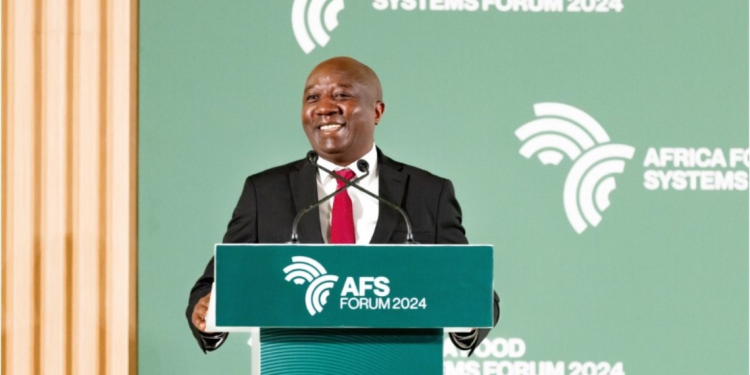African youth are demanding a greater role in addressing climate change and its impact on agriculture across the continent.
At the Africa Food Systems Forum in Kigali this September, young participants committed to enhancing Africa’s food systems through a declaration set to be presented at the upcoming UN Climate Change conference, COP29, in Baku, Azerbaijan.
The Kigali Youth Declaration urges stakeholders to elevate young people’s voices on critical issues such as climate change and youth employment. It also emphasizes the need to develop strategies that improve youth access to job opportunities in agriculture and food systems.
Agnes Kalibata, President of the Alliance for a Green Revolution in Africa, highlighted the importance of effective food systems, stating, “When the food system works, the world works.”
Kalibata noted that over 1,000 young people, including 40% women and representatives of indigenous and differently-abled groups, contributed new ideas at the forum. “These young people have submitted a climate declaration for COP29, showing their commitment to making food systems work,” she said.
The declaration highlights that African youth face significant challenges, including limited access to land, capital, and agricultural inputs, as well as difficulties with regulations, policy constraints, and climate adaptation. Gender inequality and inadequate education and training further restrict their involvement in agriculture.
Despite these challenges, African youth are recognized for their innovation and entrepreneurial spirit, which can drive positive change in food systems.
With one-third of African youths unemployed and another third in vulnerable employment, the demand for sustainable food and technological advances present opportunities for youth in agriculture. According to Agra, by 2030, African youth will represent 42% of the global youth population, with over 100 million seeking jobs.
Agriculture, which employs 50% of Africa’s workforce, holds significant potential for youth employment. However, over 25% of new job market entrants lack basic literacy, limiting their opportunities.
Kalibata emphasized that the Kigali Declaration offers a roadmap to address these challenges, leveraging youth potential to transform food systems and build a more resilient future for Africa.

















